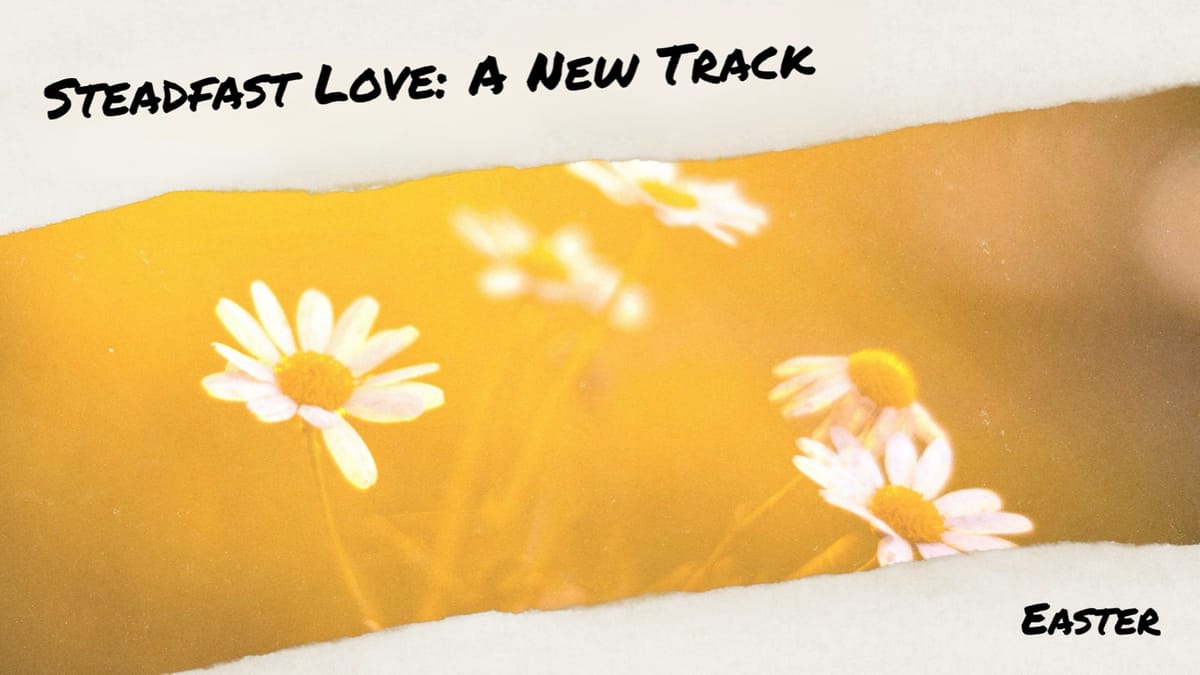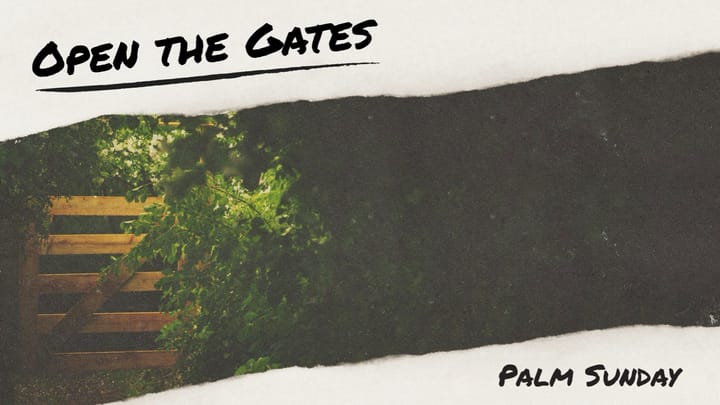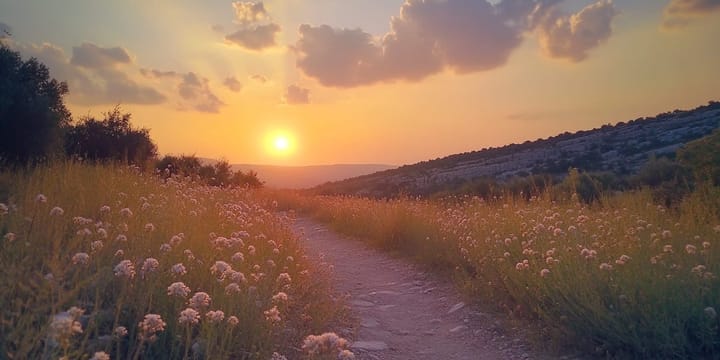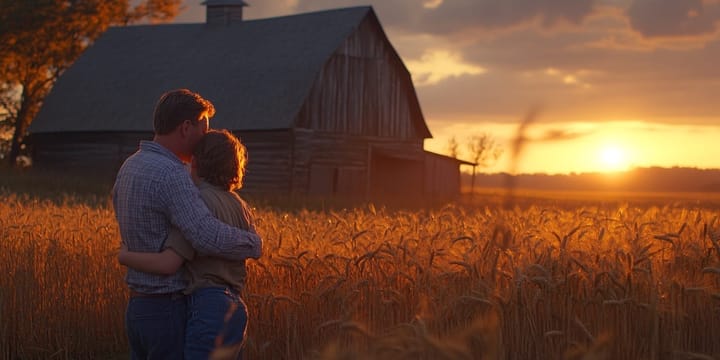Fairhaven Easter Sunday 2025

Summary
In this week’s service, Rev. Peg Bowman celebrated the joyous occasion of Easter, emphasizing the significance of Jesus’ resurrection and its profound implications for believers. She explored the variations in the Gospel accounts, highlighting John's perspective and the youthful enthusiasm reflected in his narrative. Bowman underscored the power of Jesus' resurrection, contrasting it with the inevitability of death and emphasizing that it offers a pathway to eternal life, a concept beautifully illustrated through Paul’s teachings about faith, hope, and love.
Rev. Bowman further elaborated on the transformative nature of Jesus' resurrection, explaining how it defeats death and paves the way for a future where love triumphs over all. She connected the event to the promise of a restored world, free from greed, prejudice, and violence, where even the need for prophecy and teaching will cease. Ultimately, she challenged the congregation to embrace the message of Easter and to share the "good news" as Mary Magdalene did, echoing the psalmist’s call to rejoice and recount the deeds of the Lord.
Transcript
Alleluia! The Lord is risen! Amen! It is Easter at last. All the events and experiences of this past week, Palm Sunday and that procession into Jerusalem, and then the Passover supper on Thursday night, and the crucifixion on Good Friday...
and that awful silence on Holy Saturday yesterday all lead together to the joy of this morning. And today brings, as the song says, a light of the clear blue morning. Today we celebrate resurrection and new life. And I think it's so appropriate that Jesus' resurrection comes at the same time of year as spring when the world is coming back to life, at least here in the Northern Hemisphere.
Amen. At the same time, I have to acknowledge this past year has not been an easy one for many of us here today. So we come also to remember Jesus' resurrection, to remember that Jesus walked out of the grave alive. I think it's also good to remember what this means for each one of us.
And what this means is in the words of the Psalm that we heard a few moments ago, we can now say with Jesus, I shall not die, but I shall live and recount the deeds of the Lord. And while it is true, as it says in the movie, The Green Mile, that we all owe a death, in Jesus' resurrection, death does not have to have the final word. By walking out of the grave alive, Jesus has destroyed our final enemy. Death itself is dead.
And if that's not something to celebrate, I don't know what is. The psalmist says, let us rejoice and be glad. And all four of the Gospel writers, Matthew, Mark, Luke, and John, tell us about Jesus' resurrection. Each writer offers a slightly different version of the story, and today we heard John's version of the events of Easter.
The apostle John was sometimes called the disciple that Jesus loved. Not because Jesus didn't love all his disciples, but John is believed to have been the youngest of the disciples, possibly only 19 or 20 years old, almost like a kid brother to Jesus. John is full of the enthusiasm of youth, and we can hear that youthful enthusiasm as we read his story this morning. In John's version of Easter morning, Mary Magdalene comes to the tomb early in the morning by herself.
In the other Gospels, Mary has one or two of her friends with her, and the fact that there are variations on the Easter story does not mean that the events are in question. John in particular was in a hurry that morning. Did you catch that bit about he bragged about running to the tomb faster than Peter did? Right? It's entirely possible that he just sped right past a few women, didn't even see them on his way to the tomb. Besides, any time we get two or three people telling the same story, there are going to be some variations.
So in John's telling of the story, Mary goes to the tomb early in the morning, finds that the stone covering the mouth of the tomb has been rolled away, and Jesus' body is gone. Right. and rolling that stone would not have been easy. It has been estimated that the stone on that tomb weighed between three and four thousand pounds.
Plus it had been sealed with Roman seals and was supposed to have been guarded. Mary assumes, as we probably would have also, that something has gone terribly wrong. So she runs to the disciples and tells them the stone has been moved. And Peter and John hear Mary's words when she says, they've taken the Lord out of the tomb, and we do not know where they've laid him.
So the two men take off running, and John gets to the tomb first. And just like Mary, he finds the stone rolled away, and he finds Jesus' body gone. Amen. And John also looks inside the tomb and he sees some linen wrappings lying there, burial cloths.
Now to get a mental picture of this, unlike graves that we have today, graves back then were not holes in the ground. They were not dirty and they were not small. Tombs in those days, at least the tombs of the wealthy, which this was, would have been at least the size of a studio apartment. Right? They were cut into rock, and they had a door that you could actually walk into without bending over, and you could walk around inside the tomb.
In fact, the tomb might actually have had two or three rooms cut into it, and there would have been stone shelves at various heights where bodies could be laid, and there would be enough shelves in the tomb for the entire extended family. And in this case, the tomb that Jesus was laid in was a brand new tomb that had been cut for the family of Joseph of Arimathea, and Jesus was the first person to be placed in it. So he would have been laid out on one of these stone slabs and would have been wrapped up in burial cloths with some spices in them. But when John and Peter look in and look at the slab where Jesus' body should have been lying, they saw burial cloths lying there, but no body.
And they saw the cloth that would have been around Jesus' head had been rolled up neatly and set aside. Who does this, right? John and Peter saw these things, but they didn't understand. And the ancient scriptures had said that the Messiah would die and rise again, but the disciples somehow didn't make the connection. Maybe they thought the prophecies were sort of spiritual talk, not real life events.
But whatever they were thinking, Peter and John looked at the empty grave, looked at each other, and went home. But Mary couldn't find it in herself to leave. She wanted to know where the Lord she loved had gone, what happened to his body, and what could she do to set things right. And while she was weeping and looked into the tomb, she saw two angels.
And the angels asked her, Why are you weeping? And they didn't mean that as a criticism. They were in that culture asking a why question was a gentle way of suggesting that a person might have gotten the wrong end of the stick. But Mary's reply, she says, They've taken away my Lord, and I don't know where they've laid him. And then she turns to leave.
And in turning, Mary practically bumps into someone else, someone she didn't see because of her tears. And this person asks the same question, 'Why are you weeping? Who are you looking for?' It's Jesus. But she can't see him through her tears, and she says, 'Sir, if you've taken him away, tell me where you've laid him, and I will take him.' And of course, there is no way that Mary could have carried Jesus' body by herself, but her insistence on making the effort shows the depth of her grief and her love.
And then Jesus calls her name, Mary. And in that instant, she knows. And isn't that how we all know him, when he calls our name? She answers, Rabboni, my teacher. And she must have given him a hug because the next thing Jesus says is, Don't hold on to me.
I have not yet ascended. But go tell my brothers, I'm ascending to my Father and your Father, to my God and your God. And Mary went and found the other disciples and told them everything. And in doing this, Mary became the first ever evangelist, the first ever missionary, the first ever teacher of the faith.
And of course, there's much more to the Easter story. There are other scenes like when Jesus visited all the disciples or when Jesus joined some disciples on the road to Emmaus or when Jesus talked to Doubting Thomas. There's more to the Easter story. But this is where our gospel reading leaves us for today.
Today. So before I wrap up, I'd like to spend a little bit of time with the words we heard from the Apostle Paul, because Paul brings these events out of the past and into our present, out of the history and into its meaning. Paul says that the events of Easter Sunday, and more specifically Jesus' resurrection, our absolutely bedrock foundation to our faith, essential for our forever future. Paul says, if for this life only we have hoped in Christ, we are of all people most to be pitied, Why? Because Jesus teaches us to give up what we cannot gain, to give up what we cannot keep, to gain what we cannot lose.
We cannot keep this life or anything in it. And if we give up what we can't keep for the sake of Jesus, we gain eternal life. But if there is no eternity, then we're wasting our time. We might as well eat, drink, and be merry because tomorrow we die.
But Paul says Jesus has been raised from the dead, and Paul was eyewitness to this, not to the resurrection, but Paul actually met the risen Jesus on the road to Damascus. And Paul calls Jesus the first fruits of the dead. Amen. He says that Jesus' resurrection is the first of many, many more to come.
And Paul tells us how and why. He says, Because death came into the world through a human being, that is, through the first human being, resurrection from the dead also came into the world through a human being, through Jesus, the Messiah. Amen. Paul says Jesus rises first and then all who belong to Jesus.
And then Jesus, King of kings and Lord of lords, having overcome every power on this planet, every nation, every kingdom, every ruler, every leader, Jesus then hands over the entire planet with all of its people to God the Father. And Paul says the final enemy, the final power to be destroyed is death itself. So our faith in Jesus is not just for today and not just for this life and not just for this world. If this life is all we have and if this planet is all there is, then we're wasting our time talking about God and about heaven.
But Jesus' resurrection is proof that this life is not all there is, and this world is not all there is. And imagine what it will be like when Jesus takes over from every power and every ruler on earth Here's what will happen, among other things: Wealth and money will lose their meaning. I mean, after all, the Bible says that the streets of heaven are paved with gold, and who goes around collecting gold and asphalt, right? Power will lose its meaning, because every crown will be laying at Jesus' feet. And those of us who teach or preach, we're going to be out of a job, because everything will be known and all knowledge will be complete.
As Paul says in his great chapter on love, As for prophecies, they will come to an end. As for tongues, they will cease. As for knowledge, it will come to an end. For we know only in part and we prophesy only in part, but when the complete comes, the partial will come to an end.
The good news of Easter is that love wins. Jesus. With Jesus and in Jesus and by the power of Jesus' name, all evil will die. All wrongdoing, all greed, all prejudice, all lies, all violence will be ended.
And the horrible effects of these things on people and on the planet will be completely healed. Paul says, Faith, hope, and love, these are the three things that last. They're the only things we take with us, and they're the only things worth investing in for those of us whose eyes are looking for God's eternity. We belong to Jesus, and Jesus belongs to God.
We are not alone. And when we stand on faith, we do not stand alone or in our own power. As the psalmist says, I shall not die, but I shall live and recount the deeds of the Lord. Amen.
The psalmist also says, This is the day that the Lord has made. Let us rejoice and be glad in it. Jesus said to Mary on that first Easter morning, Go and tell what you have seen. And Mary did that.
And now it's our turn. Amen.


